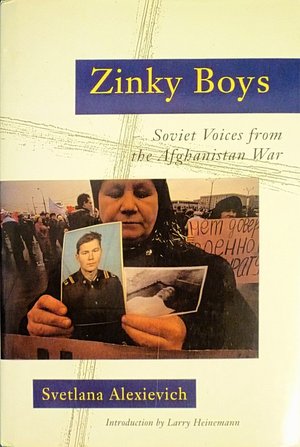There was only one time he spoke about Afghanistan. It was early evening. He came into the kitchen. I was preparing a rabbit. The bowl was bloody. He soaked his fingers in that blood and looked at it, examined it. And he said to himself:
‘They brought my friend back with his stomach completely shattered … He asked me to shoot him … And I shot him …’
His fingers were covered in blood … From the rabbit meat. It was fresh. He grabbed a cigarette with those fingers and went out on to the balcony. And he didn’t say another word to me all that evening.
***
How can you simultaneously experience history and write about it? You can’t just grab any chunk of life, take the entire existential mire by the scruff of the neck and drag it into a book.
Into history. You have to ‘crack open’ the times and ‘capture their spirit’.
‘Each substance of a grief hath twenty shadows’ (William Shakespeare, Richard II).
At the bus station an officer with a travelling bag was sitting in a half-empty waiting room. Beside him was a boy with his hair shorn in an army buzz cut, digging about in a box of dried-up figs with a fork. Some countrywomen sat down ingenuously beside them and started asking questions: where to, what for, who? The officer was escorting home a soldier who had gone insane: ‘He’s been digging since Kabul. Whatever he can lay his hands on, he digs with it: a spade, a fork, a stick, a pen.’ The boy raised his head: ‘I’ve got to hide … I’ll dig out a slit trench. I work quickly. We used to call them “communal graves”. I’ll dig out a big trench for all of you.’
It was the first time I’d ever seen pupils that covered the entire eye.
